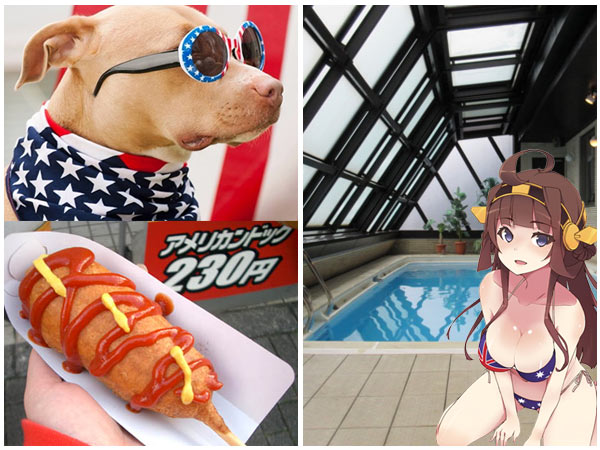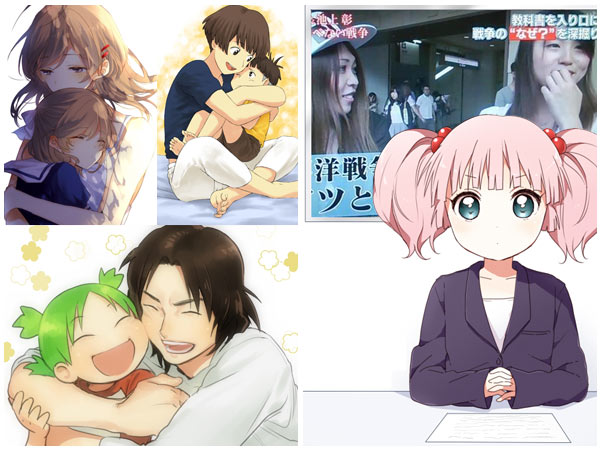One subject I like to explore is why certain types of popular culture flow all over the world, becoming part our shared global experience, while others can’t make it out of one country or language region. Certain kinds of culture, for example the great “Ievan Polkka Leekspin” boom of 2007 or the “Oreimo pose” visual gag, easily become common memes, while more specific jokes such as Reddit’s “Tsundere Shark” or the trope of recent anime series inserting lines from Hayao Miyazaki’s 1986 film Castle in the Sky Laputa into random episodes will be more limited in scope. (We had to explain to the Japanese staff of J-List why we knew our “Property of Senpai” shirt would be a hit, since they didn’t know this joke.) The other day I posted a replica of a certain Japanese indoor pool to J-List’s official Facebook page, and unsurprisingly, everyone knew the pool and what is was famous for. For the record, the pool is part of a private filming studio in Tokyo called Hanazono Room, which you can rent for the low price of $900 for a three-hour session, no matter what you want to film there.
One huge benefit to being a native English speaker living in Japan is the high number of “English” words the Japanese use every day, which in theory means fewer Japanese words for us to learn. I put the word above in quotes of course, because the Japanese often get very creative with English, changing it in ways that make sense to them but not necessarily to us. Many words are simplified for convenience, so that a baby stroller/pram becomes “baby car” and asking someone to be considerate of others is “manner up.” Other meanings are just mapped differently: for example, the English word “tension” means excitement or fun here, and a corn dog in Japan is always called an “American Dog.” Often old English terms that have fallen out of use live on all eternity in Japan. Back in the 1950s, it was common for movies to be distributed through a limited engagement called “roadshow.” We’ve forgotten the word, but it’s still going strong here in Japan, where it’s used to describe the opening of any film in a movie theater.
How many of these English words used in Japan can you guess? Highlight to read them.
- Fancy shop — a shop that sells cute toys like Sanrio or San-x
- Rentogen — an X-ray machine, named after Wilhelm Röntgen, who discovered X-rays
- Shutter chance — a great opportunity to take a photo
- Cheek time — time to dance slow, cheek to cheek
- Career up — something that enhances your career
- Link free — a Japanese note meaning “it’s okay to link to this website”
- Guts pose — showing off how strong you are with a corny pose
- Virgin Road — the church aisle a woman walks up is called this for some reason
- Hotchkiss — a stapler, named after a company that made them back in 1895
- Oneman bus — a bus without a second person to take your ticket
- Handle keeper — a designated driver.
Every year J-List makes gorgeous traditional photo, bento and sushi, kimono, art and other calendars from Japan available to our customers around the world, and we’re happy to announce that the first batch of calendars are on the site now, ready to be ordered. Preorder this year’s awesome Lucky Cat art calendar, view the most beautiful night scenes of Japanese cities and experience the four seasons in Japan. Best of all, we’re having an “Earlybird Special” on all calendars. Preorder two or more calendars before Sept 30 and get our early bird special of 20% off your purchase, which will go away after October 1st.

















